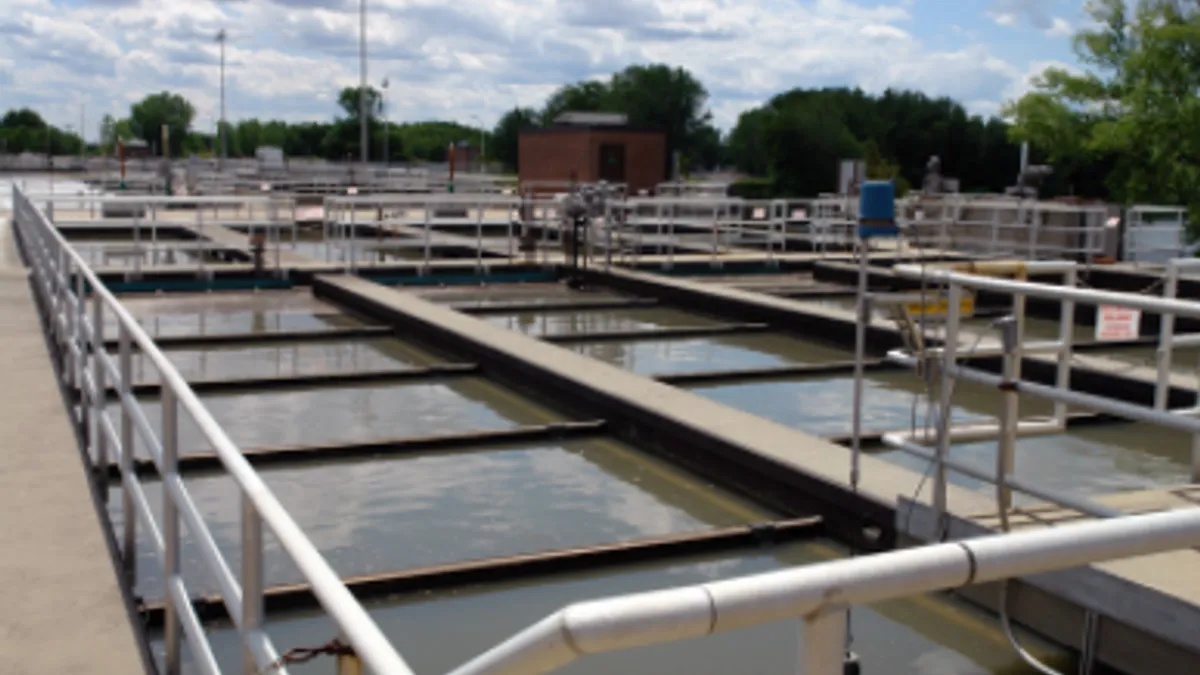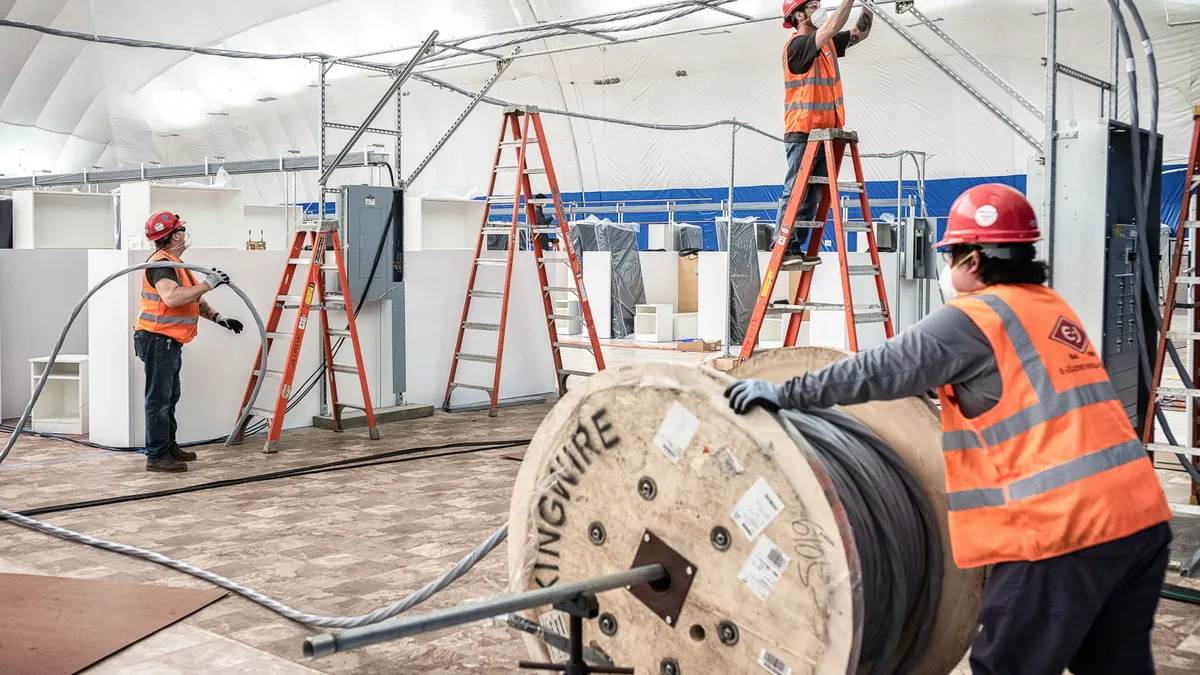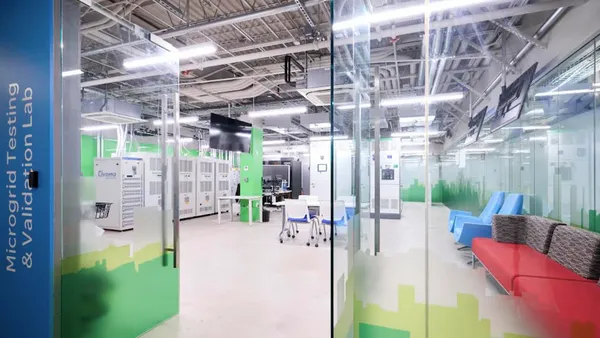Dive Brief:
- AECOM is partnering with county officials in Northern New Jersey to monitor wastewater for signs of COVID-19 in the local population. Wastewater testing can be a leading indication of infection rates when trends of COVID-19 RNA are monitored over time, according to the Centers for Disease Control and Prevention.
- In conjunction with Columbia University in New York City, AECOM's wastewater experts are helping the Bergen County Utilities Authority establish sampling regiments, analyze test results and present data, said AECOM President Lara Poloni in a press statement.
- Since the project’s first phase began last spring, the team has collected, tested and analyzed more than 650 samples, with results indicating that wastewater monitoring statistically provides a seven- to 10-day leading indicator of reported COVID-19 cases in Bergen County, which is located across the Hudson River from Manhattan.
Dive Insight:
For the first phase, the project team collected samples at the Little Ferry Water Pollution Control Facility six days per week at six different points within the plant and at various points within the sewer collection system. Molecular testing — specifically, RT-qPCR testing — was then completed to determine the COVID-19 RNA concentrations and statistical analysis was performed to develop time series trends that correlated to actual reported cases.
With a recent expansion of the program, county officials will be able to conduct a more comprehensive, systematic study to help determine emerging hotspots, inform public policy and assist with the creation of infrastructure to evaluate vaccine effectiveness once it is available to the public, according to Julien Neals, Bergen County Administrator. Wastewater testing provides objective evidence that does not rely on individuals getting tested, providing authorities with an anonymous overall picture of community health, he said.
Wastewater testing is underway in many jurisdictions across the country, including Boston; Reno, Nevada; and Tempe, Arizona, according to CNN.
One of the first areas of the country to experience a COVID-19 outbreak this spring, Bergen County’s cases are again reaching record-high levels, with some towns in the county reporting 30 to 50 new cases each day, NorthJersey.com reported.
Testing wastewater for COVID-19 RNA, which can be secreted by infected individuals prior to the display of symptoms, may deliver valuable, early information around trends in infection rates and provide advantages in tracking hot spots and developing proactive mitigation strategies. The resulting anonymous data can equip public health and emergency management officials with a continuous method of community monitoring to inform decisions around social distancing protocols, shelter-in-place orders, targeted testing, reopening strategies and vaccine deployment, the statement said.
“Through our work with BCUA and Columbia University, we have seen impressive results demonstrating that wastewater testing provides an early signal of infection rates,” said Paul Storella, senior vice president with AECOM’s water business.














